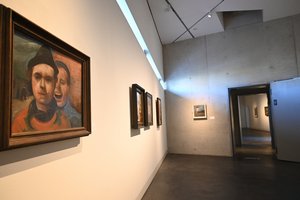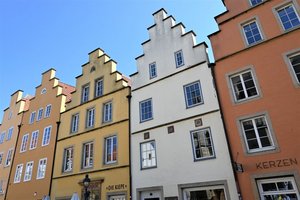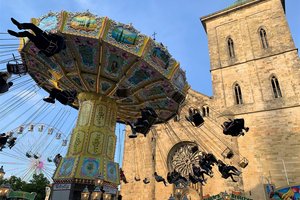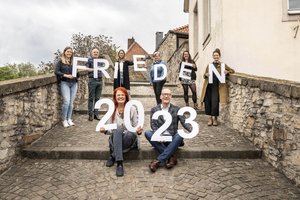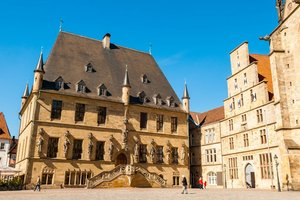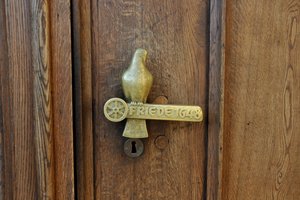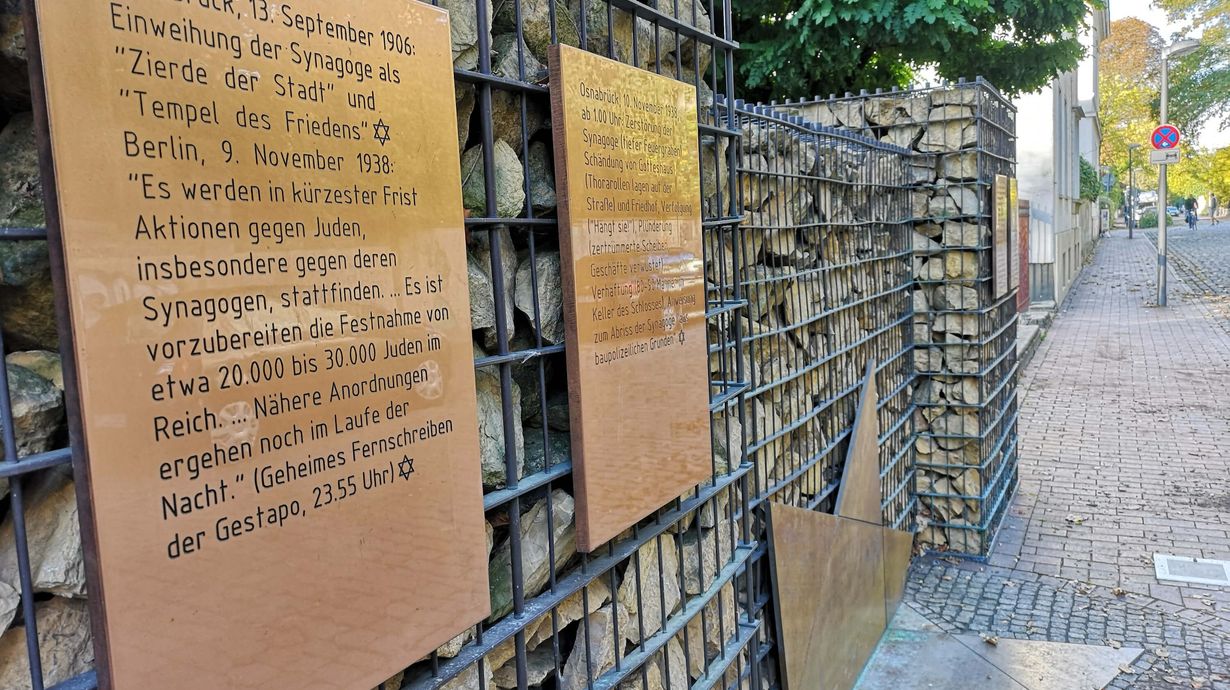In the street "Alte-Synagoge-Straße", the memorial "Alte Synagoge" (Old Synagogue) commemorates the house of worship destroyed by the National Socialists during the Pogrom Night of 9-10 November 1938. A broken Star of David symbolises the destroyed Jewish life. Four panels show the stages of exclusion and disenfranchisement, persecution, deportation and murder of Osnabrück's Jews. 162 fence posts commemorate 162 murdered people.
Building of the synagogue
After the Jewish community of Osnabrück had used the house in the street Barfüßerkloster 6/7 as a synagogue and school building since 1872, the foundation stone for a new building in the street Rolandstraße 3-5 (today's "Alte-Synagoge-Straße") was laid on 12 September 1905. The multi-storey building with an impressive dome was built by the Cologne architect Sigmund Münchhausen in the neo-Gothic style and provided space for the approximately 450 members of the congregation. It was officially opened on 13 September 1906. The adjoining building served as a community centre and housed a school with a single class. An insight into the old synagogue is provided by the painting "The Two Jews" by the Osnabrück painter Felix Nussbaum from 1926, which can be seen in the Felix Nussbaum House. The painting shows the artist next to the cantor of the Jewish community against the background of the interior of the synagogue. The double portrait is regarded as Nussbaum's confession of the Jewish faith.
Destruction of the synagogue and background
On Pogrom Night in 1938, the Osnabrück synagogue was desecrated, looted and subsequently set on fire by Sturmabteilung (SA) troops (the original paramilitary wing of the Nazi Party). On the very day of the arson, Lord Mayor Erich Gaertner ordered the demolition of the massive building, which had only been damaged, for "building regulation reasons". This demolition had already been arranged behind the scenes. The Gestapo, which was based in the west wing of Osnabrück Castle, intended to expand, while Erich Gaertner wanted to design the intended area as a castle park. To make this possible, he offered the Gestapo the site of the synagogue, to which all parties agreed. The economic plight of the Jewish community was exploited. From 1936 onwards, discrimination and flight drastically reduced the size of the community. Ninety of them were imprisoned in the Gestapo cellar of Osnabrück Castle on the very day of the Pogrom Night and deported to Buchenwald concentration camp a few days later. After the synagogue was demolished, it was auctioned off due to the financial burden. The Stadtsparkasse (City Savings Bank) acquired the now vacant area with its outbuildings for far less than its value, and shortly afterwards handed it over to the city in return for a refund of expenses. The city then exchanged the area for the grounds at the castle. However, the Gestapo did not build a new building.
History of the synagogue after the World War II and further development
After 1945, the Jewish community temporarily received the area of the Old Synagogue back "until the final transfer of ownership". The outbuilding was used as a prayer and residential building. In 1949, the congregation applied for official reassignment, but in 1954 the government acquired the area from the Jewish Trust Corporation and later added an extension to the government building.
Subsequently, between 1967-1969, a new synagogue with a community centre and flats was built in the Weststadt in the street "In der Barlage". Due to the growing number of members of the congregation, as well as due to an influx of people from the former Soviet Union, the decision was made to rebuild the community centre. This conversion began in October 2008 and ended with the ceremonial opening on 03 February 2010.
